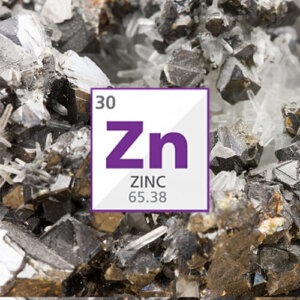Why Zinc is Essential for Good Health.
Zinc is an essential mineral that plays a vital role in various physiological processes in the body. It is necessary for immune system function, wound healing, and normal growth and development during pregnancy, infancy, and childhood. Zinc is involved in a number of important body functions including:
- Immune function: Zinc is necessary for the normal function of the immune system. It helps to activate T lymphocytes, which are critical for the body’s defense against infections. Zinc supplements may help reduce the duration and severity of the common cold, and they may also help to prevent respiratory infections.
- Wound healing: Zinc plays a crucial role in the process of wound healing. It helps to promote cell growth and division, which is necessary for the repair of damaged tissue. Zinc supplements may help to speed up the healing of minor wounds and skin irritations.
- Skin health: Zinc is essential for maintaining healthy skin. It helps to regulate oil production, which can reduce the occurrence of acne. Zinc supplements may also help to reduce inflammation and redness associated with acne.
- Fertility: Zinc is necessary for normal reproductive function in both men and women. It plays a role in sperm production and the maturation of eggs. Zinc supplements may help to improve fertility in men with low sperm count.
- Brain function: Zinc is important for the normal function of the brain. It helps to regulate communication between nerve cells and plays a role in the formation and storage of memories. Zinc supplements may help to improve cognitive function in older adults.
Zinc and Immune Function
Several decades of studies have looked at the mechanisms by which zinc regulates a persons susceptibility to infection.
Zinc plays a central role in the immune system. When a person is zinc-deficient they will experience increased susceptibility to a variety of pathogens (bacterium, virus, or other microorganism that can cause disease).
Clearly zinc affects multiple aspects of the immune system, from the barrier of the skin to gene regulation within lymphocytes (a type of immune cell that is made in the bone marrow and is found in the blood and in lymph tissue).
Cells need zinc to develop and function normally. Zinc also effects the functioning of neutrophils (white blood cell) and natural killer cells (a type of immune cell that can kill tumor cells or cells infected with a virus).
Also, Zinc functions as an antioxidant and can stabilize membranes.
Zinc Deficiency
Zinc deficiency also affects development of acquired immunity by:
- It helps protect the body from infection by inhibiting both the growth and some functions of T lymphocytes.,
- Th1-type cytokines, responsible for killing intracellular parasites and perpetuating autoimmune responses, are hindered (i.e. proinflammatory responses are inhibited)., and
- Compromises the growth of B lymphocytes (types of white blood cells that make antibodies), particularly the immunoglobulin G antibody.
A zinc deficiency adversely affects macrophages (a cell that plays a pivotal role in many immunological functions), this disruption of normal function of a regulatory mechanism intracellular killing (a fundamental defense mechanism against invading pathogens) can result in a dysfunctional level of activity. In the immune system, zinc deficiency affects the production of cytokines (proteins, peptides, or glycoproteins)., and it hinders phagocytosis (ingestion or engulfing of other cells or particles).
The effects of zinc on these key immunologic mediators is rooted in the myriad roles for zinc in basic cellular functions such as DNA replication, RNA transcription, cell division, and cell activation.
There is also the increased potential for apoptosis (the death of cells) by zinc deficiency.
Research Reference
Shankar AH, Prasad AS. Zinc and immune function: the biological basis of altered resistance to infection. Am J Clin Nutr. 1998 Aug;68(2 Suppl):447S-463S. doi: 10.1093/ajcn/68.2.447S. PMID: 9701160. https://pubmed.ncbi.nlm.nih.gov/9701160/
Too Much Zinc
It’s worth noting that taking too much zinc can be harmful to health and cause adverse effects. The recommended daily allowance for zinc is 8-11 mg per day for most adults. If you’re considering taking a zinc supplement, it’s best to speak to your doctor first to determine if it’s necessary and to determine the appropriate dosage for your needs.
Foods Rich in Zinc
There are many foods that are good sources of zinc, including:
- Shellfish: oysters, crab, and lobster.
- Meat: beef, pork, and lamb.
- Poultry: chicken and turkey are good sources of zinc.
- Fish: salmon, sardines, and anchovies.
- Beans and legumes: chickpeas, lentils, and kidney beans.
- Nuts and seeds: pumpkin seeds, sesame seeds, and cashews.
- Dairy products: milk, cheese, and yogurt.
- Whole grains: wheat, rice, and quinoa.
- Vegetables: spinach, kale, and mushrooms.
- Dark chocolate: a small amount of dark chocolate can also provide a significant amount of zinc.
bioavailability
the proportion of a drug or other substance which enters the circulation when introduced into the body and so is able to have an active effect.
The Body’s Ability to Absorb Zinc
Bioavailability refers to the proportion of a nutrient that is absorbed and used by the body from the food source it comes from. Zinc is an essential mineral that plays a role in many bodily functions, including immune system function, wound healing, and DNA synthesis. However, the bioavailability of zinc can vary depending on the food source it comes from.
Animal-based foods, such as meat, poultry, and seafood, are generally good sources of bioavailable zinc. This is because these foods contain heme iron, which enhances zinc absorption. For example, beef is a particularly good source of zinc, with around 4.5 mg of zinc per 100 grams of meat, and is highly bioavailable.
Plant-based foods, on the other hand, can contain compounds such as phytates and fiber, which can reduce zinc absorption. Foods such as whole grains, legumes, and nuts are still good sources of zinc, but the bioavailability of the zinc in these foods may be lower than in animal-based foods. However, soaking, sprouting, or fermenting these foods before consuming them can help to reduce the phytate content and increase zinc bioavailability.
In summary, while zinc is found in a variety of foods, the bioavailability of zinc can vary depending on the food source it comes from. Animal-based foods are generally good sources of bioavailable zinc, while plant-based foods may require some additional preparation to improve their zinc bioavailability.
Our Plant-Based Zinc is a Superior Health Supplement
Unlike trying to get enough zinc from plant-based food, our zinc health supplement has no compounds (like phytates or fiber) which can reduce absorption. There are two ingredients in our zinc supplement: plant-based zinc and distilled water… that’s it!
Prehistoric plant deposits are the source of our liquid zinc supplement. We ensure purity and, to make sure our zinc is bioavailable, processing is kept to a minimum. The only minerals that can be absorbed and assimilated by the body are those derived from plants. This is because the minerals were digested by living vegetation before being transformed into organic material using the sun’s energy. This results in extraordinary nutrition for your cells.
-
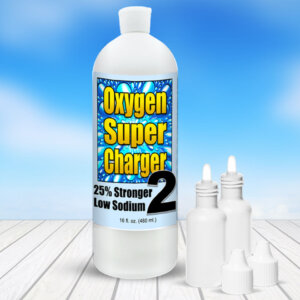
Ultra Strength OxygenSuperCharger2, 25% Stronger, 16–Ounce Bottle
$119.97 Add to cart -
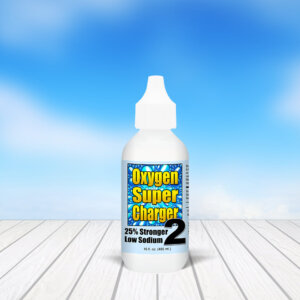
Ultra Strength OxygenSuperCharger2, 25% Stronger, 2–Ounce (Sample Size)
$35.97 Add to cart -
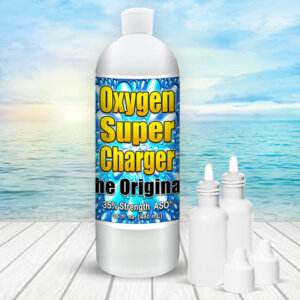
Original 35% Strength OxygenSuperCharger, 16–Ounce Bottle
$96.97 Add to cart -
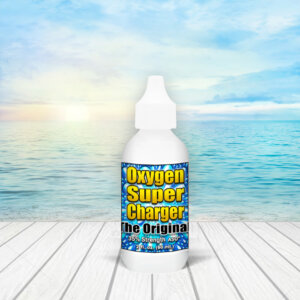
Original 35% Strength OxygenSuperCharger, 2–Ounce (Sample Size)
$27.97 Add to cart -

MineralSuperCharger, Premium Multi-Mineral Supplement, 32-Ounce Quart
$98.97 Add to cart -
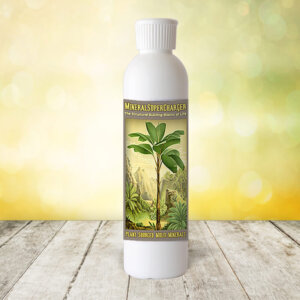
MineralSuperCharger, Premium Multi-Mineral Supplement, 8-Ounce (Sample Size)
$29.97 Add to cart -
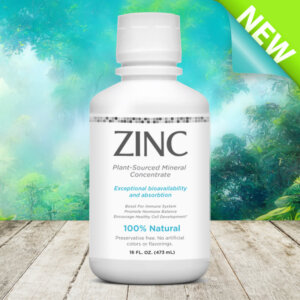
Zinc – Plant-Sourced Mineral Concentrate, 16-ounce
$24.97 Add to cart -
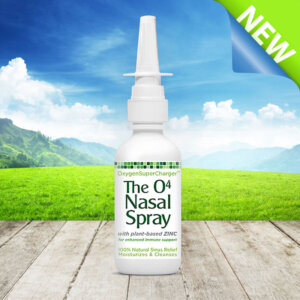
O4 Nasal Spray with Zinc
$14.97 Add to cart

